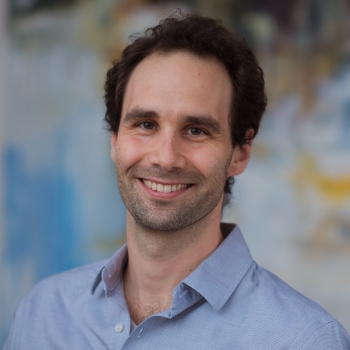
Faculty Title:
Member, Whitehead Institute for Biomedical Research
Thomas D. and Virginia W. Cabot Career Development Professor of Biology, MIT
Education:
Ph.D. 2013, Stem cell and Regenerative Medicine, Harvard University
A.B. 2007, Biochemical Sciences, Harvard University
Department:
- Biology
Room:
Room 661c, Whitehead Institute, 455 Main Street, Cambridge, MA
Phone Number:
617-324-4436
Email:
Faculty Bio:
Hrvatin earned an AB in biochemical sciences and a PhD in stem cell and regenerative medicine from Harvard University, served as a Postdoctoral Research Fellow and an Instructor in Neurobiology at Harvard Medical School, and joined Whitehead Institute and the MIT faculty in January 2022. Hrvatin is co-founder of ReadCube, a software company that serves millions of researchers, publishers, academic and commercial organizations by providing access to scientific literature and reference management
Research Areas:
- Behavioral Genetics and Genomics
- Bioengineering and Neuroengineering
- Biological Networks and Machine Learning
- Cellular Biophysics
- Chemical Biology and Metabolomics
- Evolutionary and Computational Biology
- Molecular Biophysics and Structural Biology
- Quantitative Imaging
- Regulatory Genomics, Epigenomics, and Proteomics
- Single Cell Manipulations and Measurement
Research Summary:
To survive extreme environments, many animals have evolved the ability to profoundly decrease metabolic rate and body temperature and enter states of dormancy, such as torpor, hibernation, or cryobiosis. Our laboratory studies the mysteries of how animals and their cells initiate, regulate, and survive these adaptations. Specifically, we focus on investigating: 1) how the brain regulates metabolism and temperature during torpor (in mice) and hibernation (in hamsters), 2) how cells from various organisms adapt to function at low temperatures, 3) how tardigrades evolved to survive cycles of freezing and thawing, and 4) the applications of these states to slowing down tissue damage, disease progression, aging, and cryopreservation. Our long-term goal is to explore potential applications of inducing similar states of “suspended animation” in humans.
Computational approaches in our lab include: cross-species genomic comparisons (eg. why only some organisms can hibernate, or survive low temperature); systems neuroscience; discovery of novel proteins in nonconventional model organisms (e.g. tardigrades); designs of synthetic proteins with new functions.
